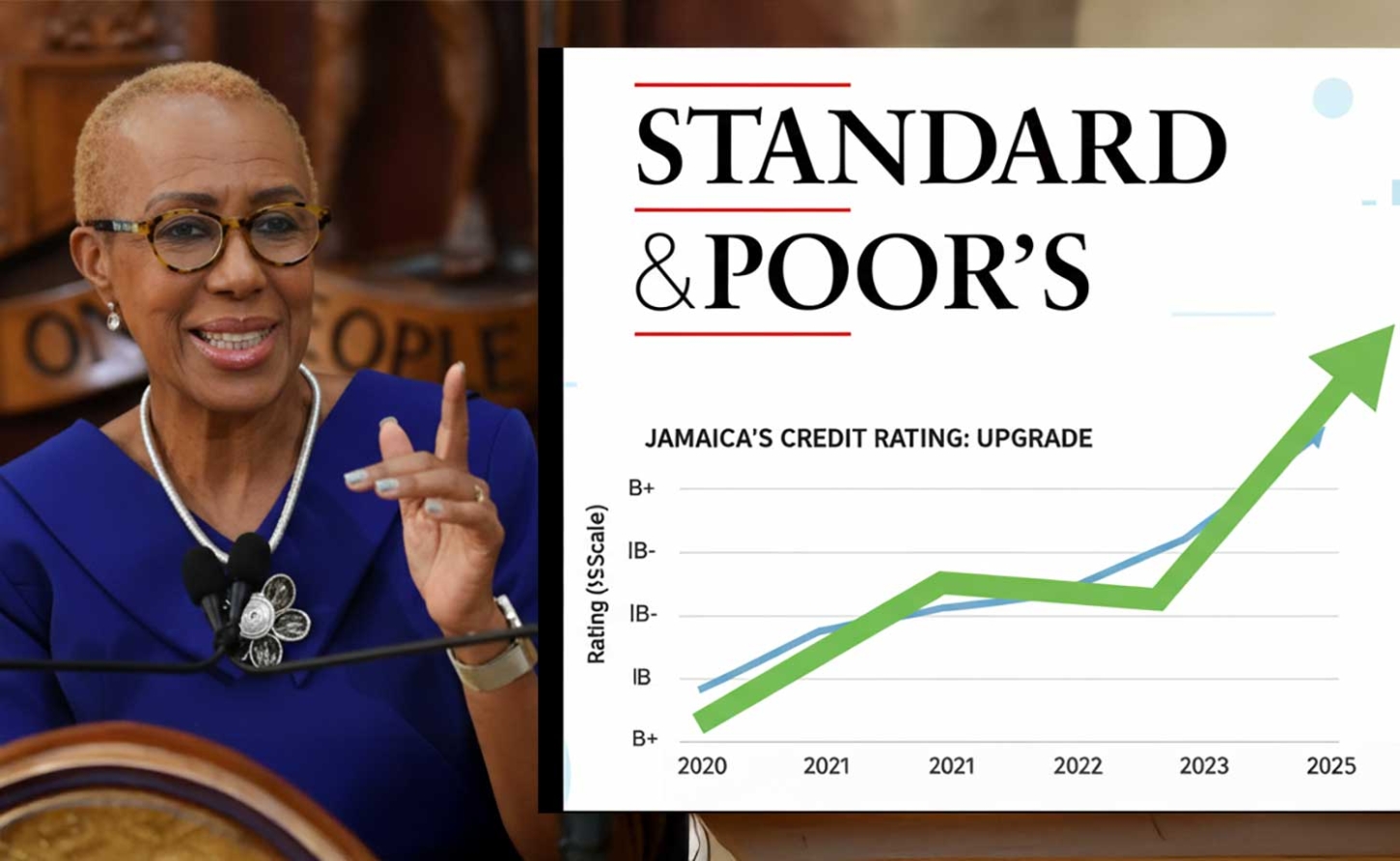JAMAICA | Beyond the Rating: Jamaica's Agricultural Crossroads Could Define Its Investment-Grade Future

While Jamaica celebrates its S&P upgrade, a policy blind spot threatens the very growth trajectory that could secure investment-grade status
On September 25, 2025, Finance Minister Fayval Williams had every reason to celebrate. Standard & Poor's upgrade of Jamaica's sovereign credit rating from BB- to BB represented a decade of grueling fiscal discipline finally bearing fruit.
The achievement is undeniably impressive—Jamaica stands alone among 141 rated sovereigns in maintaining primary surpluses above 3.0 percent of GDP for ten consecutive years, weathering pandemics and climate disasters while steadily chipping away at its debt burden.
Yet beneath the congratulations and positive outlook lies a glaring contradiction that threatens to undermine the very growth trajectory Jamaica needs to cross the investment-grade threshold.
While the government meticulously manages its fiscal accounts, it simultaneously presides over the systematic destruction of the country's agricultural base—the very sector that could accelerate the GDP growth necessary to make investment-grade status sustainable.
The Fiscal Achievement Trap
S&P's upgrade acknowledges Jamaica's institutional strengthening and bipartisan consensus on debt reduction, with the legislated target of 60 percent debt-to-GDP by March 2028 now appearing achievable ahead of schedule.
But this fiscal success story masks a fundamental growth problem. Jamaica's economy remains stubbornly sluggish, with GDP growth consistently underperforming regional peers and falling short of the robust expansion needed to support improved living standards.
The rating agency's positive outlook hinges on continued primary surpluses, but sustained surpluses in a low-growth environment increasingly depend on constraining public investment rather than expanding the economic pie.
This creates a perverse incentive structure where short-term fiscal metrics take precedence over long-term productive capacity.
The Agricultural Abandonment
Nowhere is this contradiction more stark than in agriculture, where Jamaica's natural advantages remain systematically underexploited. The island's diverse microclimates, fertile soils, and year-round growing season represent untapped potential worth billions in import substitution and export earnings.
Yet agricultural GDP has stagnated for decades, contributing less than 7 percent to national output despite employing nearly 18 percent of the workforce.
The numbers tell a damning story. Jamaica imports over $1 billion annually in food products that could be produced locally, from basic staples like yams and chicken to higher-value crops like coffee and cocoa.
This import dependency not only drains foreign exchange but creates dangerous food security vulnerabilities in a region increasingly battered by climate change and global supply chain disruptions.
Recent analysis suggests that targeted agricultural investment could generate GDP multiplier effects of 1.5 to 2.0, meaning every dollar invested in agricultural infrastructure, technology, and training could yield up to two dollars in economic output.
Such returns would dramatically accelerate the growth rates needed to sustain investment-grade status while reducing import dependency.
The Land Conversion Scandal
Instead of protecting and developing this agricultural potential, Jamaica tolerates—and in some cases actively facilitates—the conversion of prime agricultural land into housing developments and commercial projects.
Across the island, developers target agricultural plots for their relatively low acquisition costs and minimal regulatory hurdles, permanently removing productive land from the agricultural base.
This land conversion represents a classic market failure where private developers capture short-term profits while society bears the long-term costs of reduced food security and lost agricultural potential. Government data shows thousands of acres of agricultural land reclassified for development annually, yet no comprehensive study exists of the cumulative economic impact of this conversion.
The policy framework enabling this conversion reveals institutional dysfunction. While the government celebrates debt reduction achievements, it lacks the strategic vision to protect agricultural lands as strategic national assets.
Zoning laws remain weak, environmental impact assessments focus on immediate rather than cumulative effects, and no mechanism exists to value the long-term agricultural potential of converted lands.
The Investment-Grade Imperative
Minister Williams correctly identified the BB rating as bringing Jamaica "closer to hurdling the bar to an investment-grade rating." But achieving that goal requires more than continued fiscal discipline—it demands sustained GDP growth rates that current policies cannot deliver.
Agricultural development offers Jamaica's most promising path to accelerated growth. Unlike manufacturing or services, agriculture leverages Jamaica's comparative advantages while creating distributed employment and reducing import dependency.
Strategic agricultural investment could simultaneously boost GDP growth, strengthen the balance of payments, and enhance food security—precisely the kind of sustainable development profile that rating agencies value in investment-grade sovereigns.
Beyond the Celebration
Jamaica's S&P upgrade deserves recognition as a hard-won achievement reflecting years of disciplined governance. But the real test lies ahead. The same institutional capacity that delivered fiscal consolidation must now tackle the more complex challenge of sustainable growth.
That means treating agricultural land as strategic infrastructure, implementing comprehensive land-use planning that prioritizes food security, and designing investment incentives that favor productive agriculture over speculative development.
The fiscal discipline that impressed S&P provides Jamaica with the policy credibility to make these changes. Whether the government possesses the political will to challenge entrenched interests remains the critical question.
The path to investment-grade status runs through Jamaica's fields, not just its finance ministry. The sooner policymakers recognize this reality, the sooner celebration can give way to the serious work of building sustainable prosperity.
-30-
